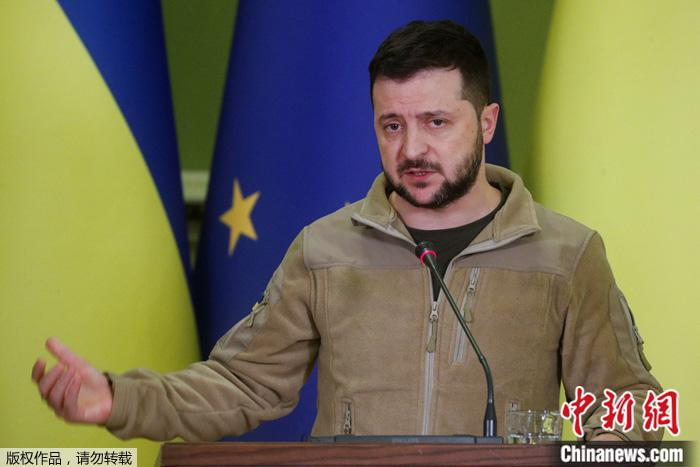[Global Network Report] According to Agence France-Presse, Ukrainian President Volodymyr Zelensky said in the Luxembourg parliament on June 2, local time, that Russia controls about one-fifth of Ukraine's territory, including areas "occupied since Russia launched military operations". ”, the Crimean peninsula and territories controlled by Moscow-backed “separatists”.
Data map: Zelensky.
"Today, about 20 percent of our territory is under the control of the occupier," Zelensky said in a video address to the Luxembourg National Assembly, according to reports. Agence France-Presse said the Russian army was consolidating its grip on the eastern Donbass region. control and steadily advancing towards Kramatorsk, the administrative center of the region.
In 2014, Moscow-backed "separatists" and the Russian military took control of 43,000 square kilometers of Ukraine, Zelensky said, which he compared with the size of the Netherlands (41,528 square kilometers). Compare.
But more than three months after Russia launched its military campaign, that number has grown to nearly 125,000 square kilometers, an area Zelensky said is "far more than" the Netherlands, Belgium and Luxembourg combined.
Zelensky also claimed that an area "nearly 300,000 square kilometers" was "contaminated" by mines and unexploded ordnance.
"12 million Ukrainians were displaced and more than 5 million left," he added.
According to previous reports, on May 28, local time, the Russian Ministry of Defense announced that the Russian army, the Donetsk Armed Forces and the Luhansk Armed Forces have fully controlled the strategically important town of Bonliman in the Donetsk region.
In the face of changes in the situation in eastern Ukraine, Zelensky has repeatedly asked Europe and the United States for assistance in recent days, especially emphasizing military assistance.
In this regard, Russian President Vladimir Putin has repeatedly accused the continuous flow of Western weapons to Ukraine, which risks exacerbating the deterioration of the situation and the humanitarian crisis.

